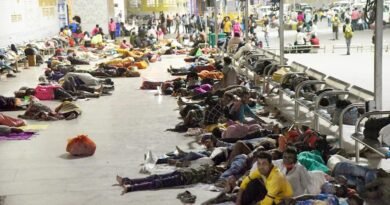BIMSTEC Summit adopts charter, transport master plan
New Delhi, March 30 dmanewsdesk: Seven-nation regional grouping BIMSTEC on Wednesday adopted a charter to expand its overall cooperation and firmed up a master plan for transport connectivity at a virtual summit attended by Prime Minister Narendra Modi and other leaders of the bloc.
Shortly after the Summit, the Ministry of External Affairs (MEA) said the adoption of the charter has given the BIMSTEC an “international personality” and it reflected a significant evolution of this grouping.
Besides India, the BIMSTEC (Bay of Bengal Initiative for Multi-Sectoral Technical and Economic Cooperation) comprises Sri Lanka, Bangladesh, Myanmar, Thailand, Nepal and Bhutan.
Rudrenda Tandon, the Additional Secretary in the MEA looking after the BIMSTEC division, said Modi announced USD 1 million (one million is equal to ten lakhs) as an ad-hoc grant for the operational budget of the grouping’s secretariat.
He said the summit, hosted by Sri Lanka, also finalised three documents providing for the expansion of cooperation.
At a media briefing, Tandon said the leaders of the BIMSTEC member countries also approved a complete reorganisation of the grouping’s cooperation activities.
Henceforth, the BIMSTEC cooperation activities will take place in seven pillars and each of the member countries will lead one pillar, Tandon said.
He said India will lead the security pillar of the BIMSTEC.
From our perspective the signing of the charter is the most important outcome, Tandon said, adding the Summit made “incremental progress” in further expansion of cooperation among the member states.
In his address, PM Modi proposed that the pace of cooperation be accelerated and the grouping should not rest after the adoption of the charter.
Tandon said the prime minister also spoke about the need to move forward in areas of connectivity, marine cooperation, security and economic integration.
India has been making concerted efforts to make BIMSTEC a vibrant forum for regional cooperation as initiatives under SAARC (South Asian Association for Regional Cooperation) were not moving forward for a variety of reasons.
Source: PTI




